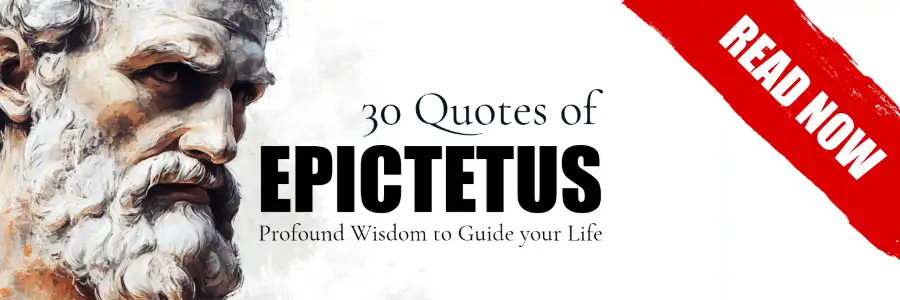
Epictetus
The Slave Turned Philosopher
Epictetus was born into slavery around 50 AD in Hierapolis, Phrygia (modern-day Turkey). Despite his early life under servitude, he rose to become one of the most influential Stoic philosophers.
His master, Epaphroditus, allowed him to study philosophy, and he became a pupil of Musonius Rufus. Through his teachings, Epictetus emphasized that true freedom is found not in external circumstances, but in the mind’s ability to remain virtuous and rational regardless of physical condition.
Epictetus’s Philosophy: Freedom through Inner Control
Epictetus’s philosophy centers on the idea that while we cannot control life’s events, we can control how we respond to them. His teachings focus on distinguishing between what we can change—our thoughts, actions, and attitudes—and what lies beyond our control, such as other people’s opinions and external events. By accepting this fundamental division, Epictetus believed we could achieve lasting freedom and inner tranquility.
The Dichotomy of Control
Central to Epictetus’s philosophy is the concept of the Dichotomy of Control. He taught that while we cannot control external events, we can control our own responses to them. This idea is famously encapsulated in his assertion that some things are within our power, while others are not.
By focusing on what we can control—our own thoughts and actions—we can achieve a sense of peace and resilience in the face of life’s challenges. This principle remains a cornerstone of modern Stoic practice and self-improvement philosophies.
Epictetus’s Wisdom: Quotes for Strength and Serenity
Epictetus’s words carry a timeless wisdom that speaks to the modern reader. His reflections challenge us to focus on personal growth, let go of attachment to outcomes, and embrace life with courage and acceptance. His teachings inspire us to find strength in adversity and serenity in acceptance, offering powerful reminders of resilience and inner freedom.
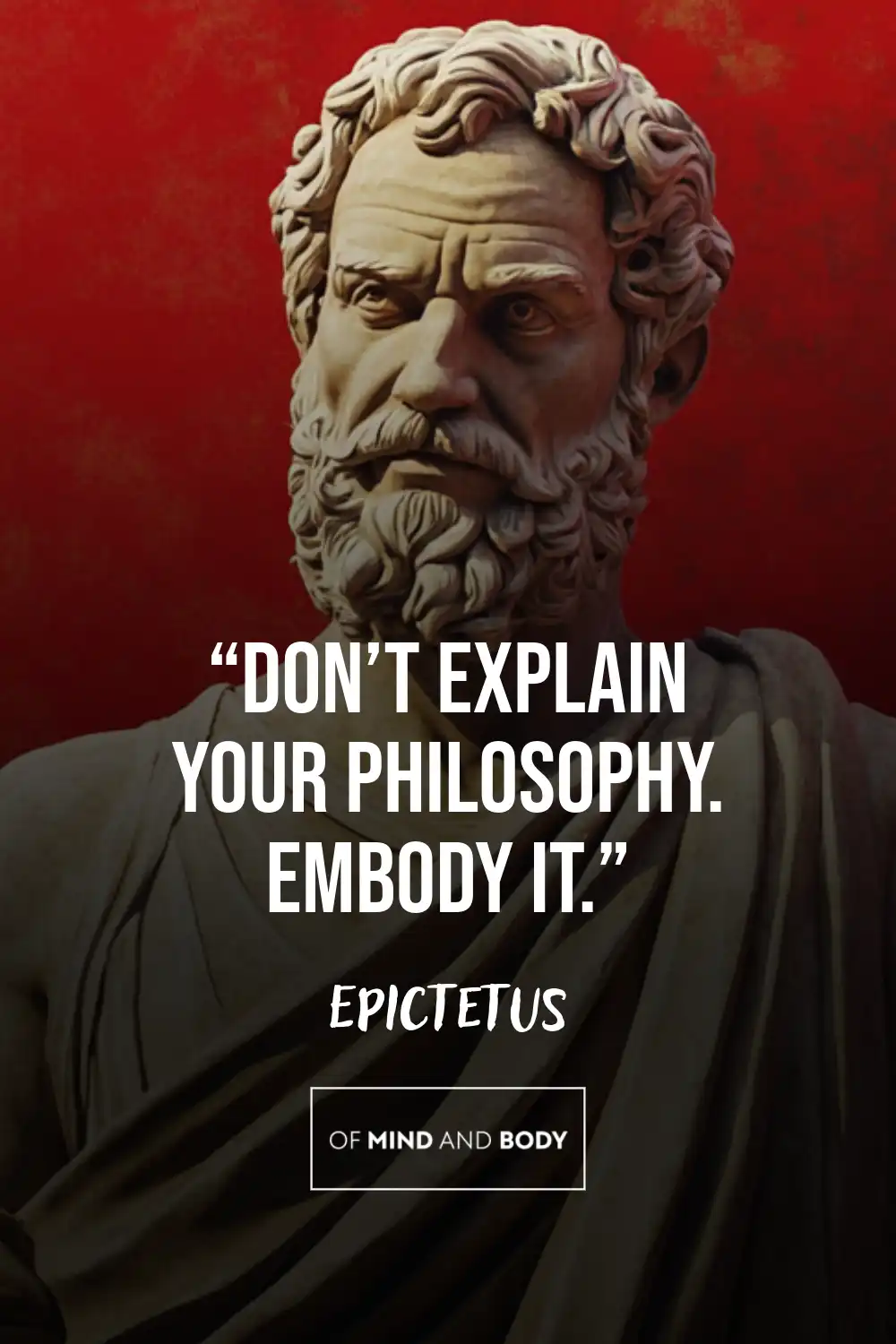
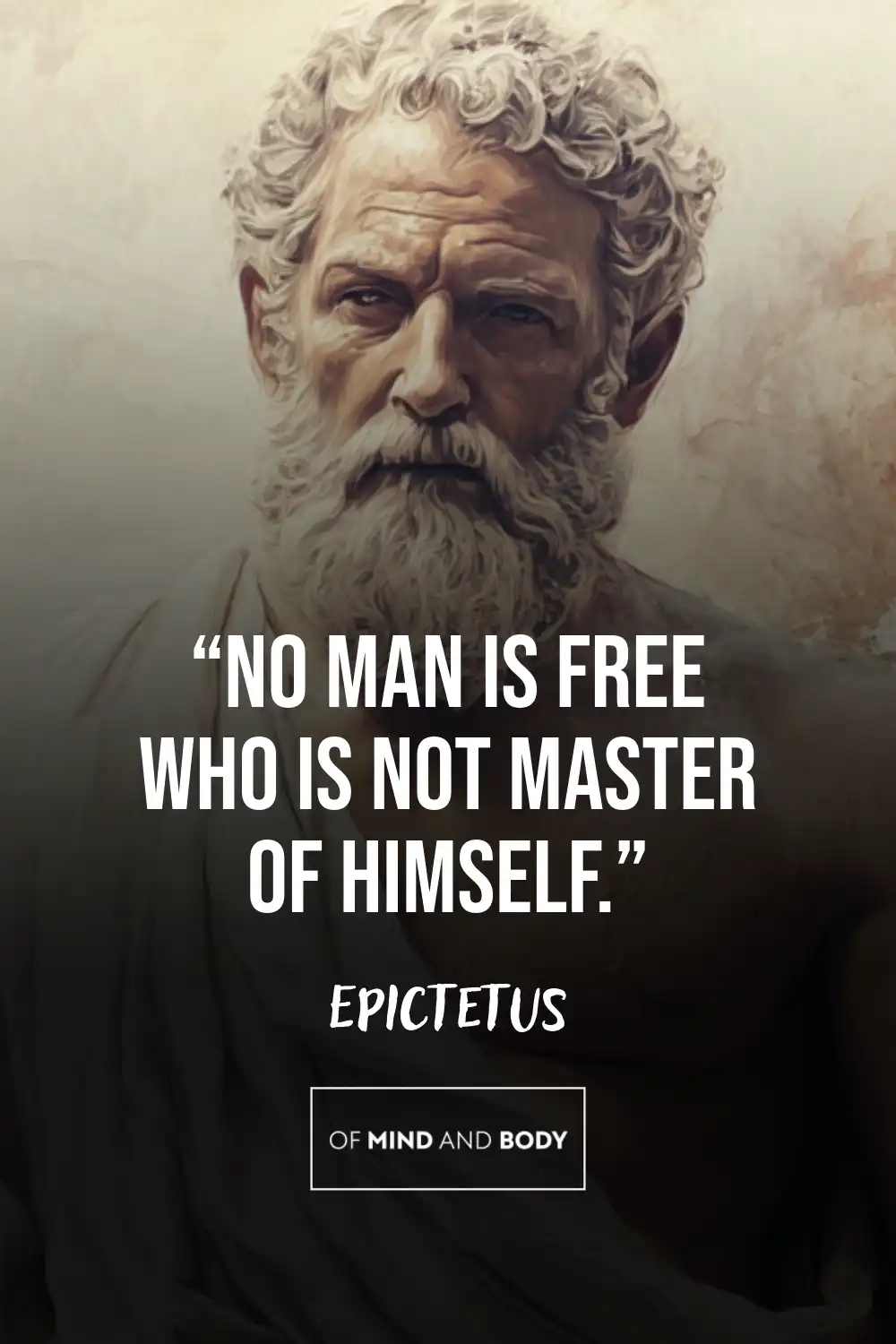
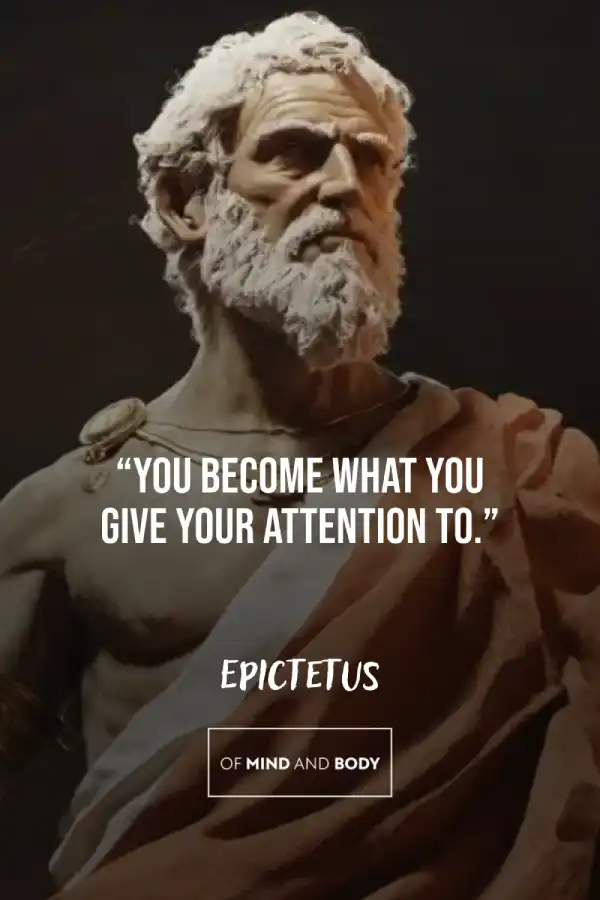
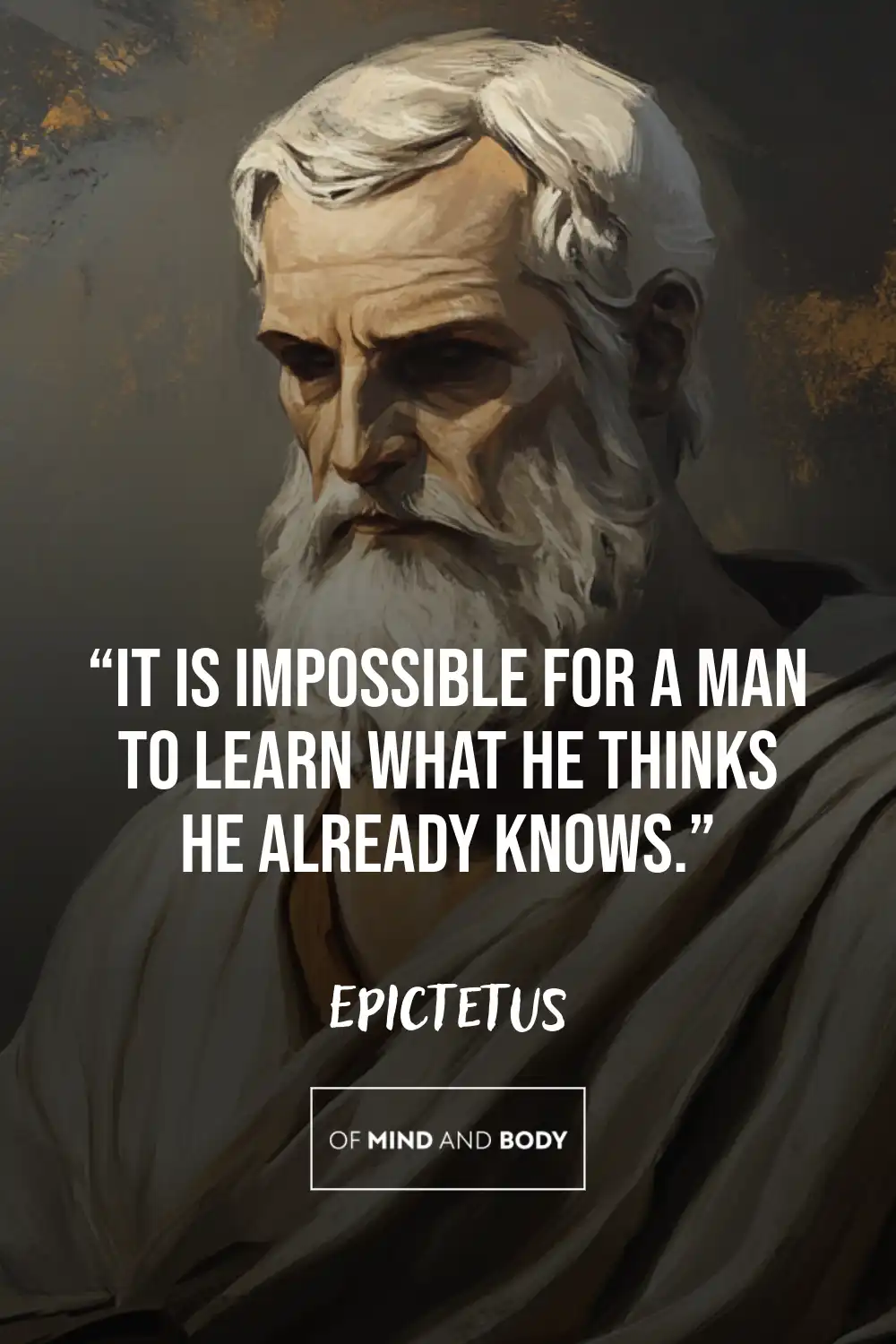

Discover some of Epictetus’s most profound quotes and the Stoic lessons they impart in our curated selection:
Key Works of Epictetus: Discourses and The Enchiridion
Epictetus’s teachings were transcribed by his student Arrian in the form of the “Discourses” and the “Enchiridion” (or “Handbook”). The “Discourses” are a collection of more extensive discussions, whereas the “Enchiridion” is a concise manual of his core ideas. These works cover a wide range of topics including ethics, logic, and theology, all grounded in the Stoic tradition.
Through practical advice and profound insights, Epictetus guides readers toward a life of virtue and inner tranquility, emphasizing the importance of reason, self-discipline, and the acceptance of fate.
Subscribe
Sign up with your email below and receive:
- 5 Day Introduction to Stoicism Course
- 10 Stoic Quotes Phone Backgrounds
- Defining your Values and Beliefs eBook
- Weekly Newsletter and Alerts to the Latest Articles
Start building your Stoic mindset today!
*We respect your privacy and will never share your details with anyone.


